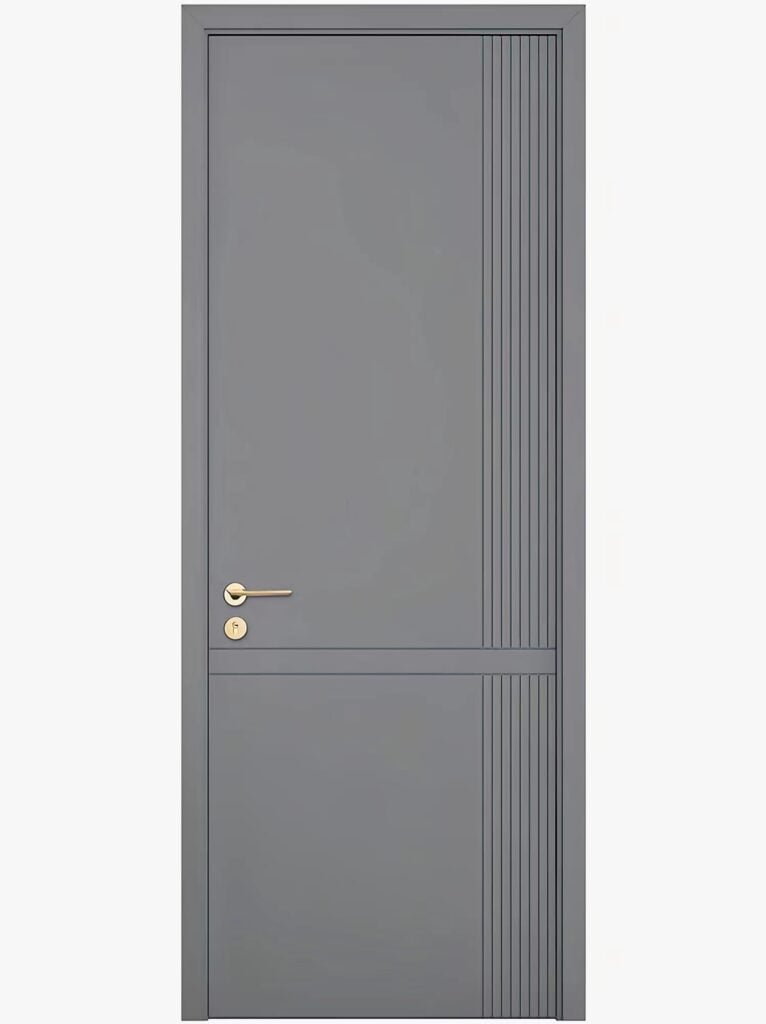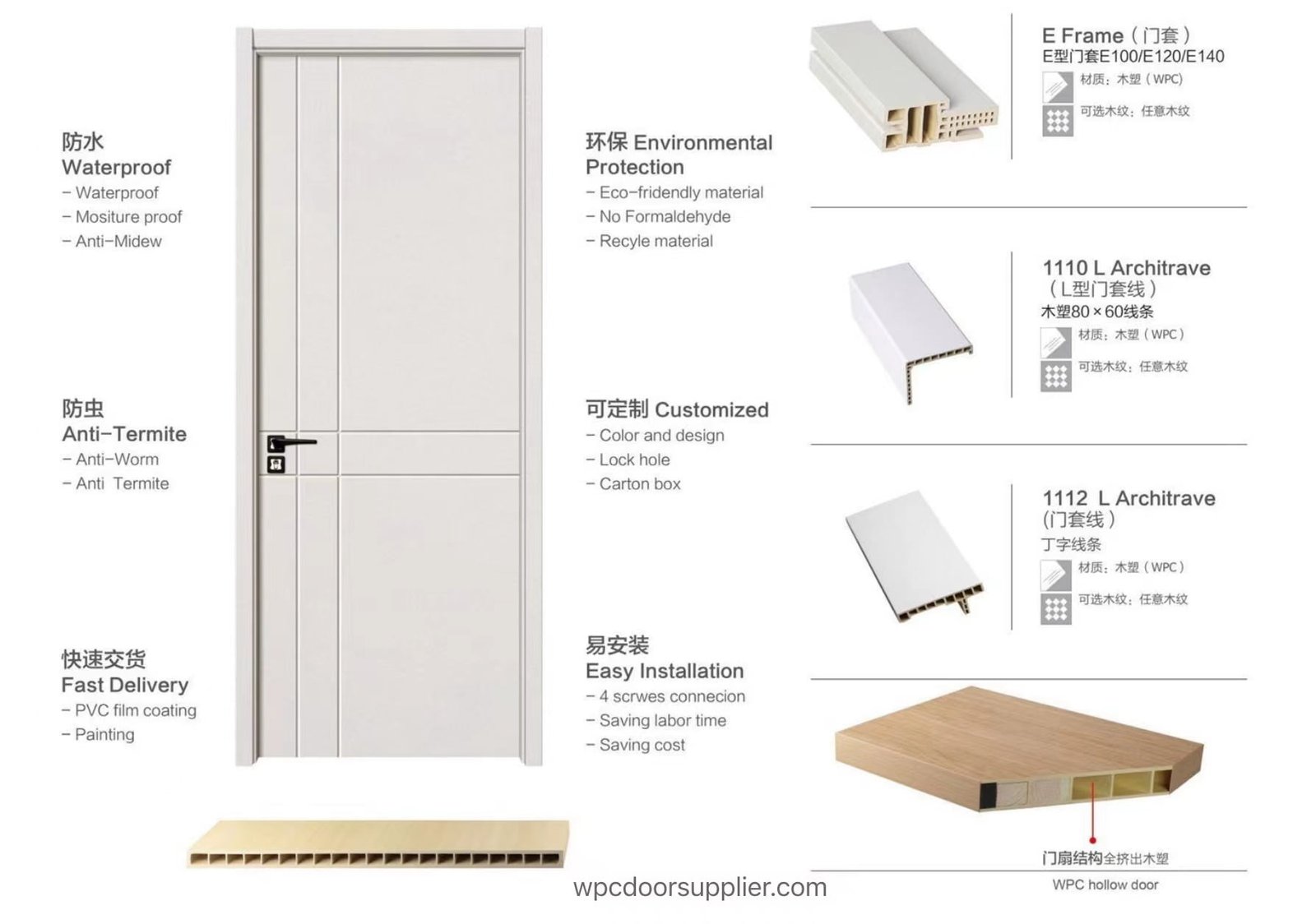Introduction:
In an era of increasing environmental awareness, sustainability has become a key consideration in the construction industry. Wood-plastic composite (WPC) doors offer sustainable solutions for businesses looking to reduce their environmental impact. In this article, we will explore how WPC doors contribute to green building practices and help businesses create sustainable commercial buildings.
Thank you for reading this post, don't forget to subscribe!- The Use of Recycled Materials in WPC Doors:
WPC doors are manufactured using a combination of wood fibers and recycled plastic. The wood fibers are sourced from post-industrial and post-consumer waste, such as sawdust and wood chips. The recycled plastic is typically derived from sources such as plastic bottles and packaging materials. By utilizing these recycled materials, WPC doors reduce the demand for virgin materials and help divert waste from landfills.

- Energy Efficiency and Insulation Properties of WPC Doors:
WPC doors offer excellent energy efficiency and insulation properties, contributing to the overall sustainability of commercial buildings. The combination of wood fibers and plastic in their composition provides natural insulation, reducing heat transfer and improving thermal efficiency. This insulation helps to maintain comfortable indoor temperatures, reducing the reliance on heating and cooling systems and lowering energy consumption.

- Reduced Maintenance and Longevity of WPC Doors:
WPC doors require minimal maintenance compared to traditional doors made from wood or metal. They are resistant to rot, decay, and insect damage, eliminating the need for regular treatments and repairs. Additionally, WPC doors have a longer lifespan, reducing the frequency of replacements. This longevity not only saves costs but also reduces waste and the environmental impact associated with door replacements.

- The Role of WPC Doors in (LEED & CE & ISO 9001 & BSCI) Certification for Commercial Buildings:
Leadership in Energy and Environmental Design (LEED & CE & ISO 9001 & BSCI) certification is a globally recognized standard for sustainable building design and construction. WPC doors can contribute to (LEED & CE & ISO 9001 & BSCI) certification points in various categories, such as Materials and Resources, Indoor Environmental Quality, and Innovation in Design. By choosing WPC doors, businesses can enhance their chances of achieving (LEED & CE & ISO 9001 & BSCI) certification and demonstrate their commitment to sustainability.

- Recycling and Disposal of WPC Doors:
At the end of their lifespan, WPC doors can be recycled and repurposed into new products. The wood fibers and plastic can be separated and reused in the manufacturing of other WPC products or different industries. Proper recycling and disposal of WPC doors ensure that they do not end up in landfills, further reducing their environmental impact.
Summary:
WPC doors offer environmental benefits for sustainable commercial buildings. By utilizing recycled materials, providing energy efficiency and insulation, and reducing maintenance and waste, WPC doors contribute to green building practices. Additionally, WPC doors can help businesses achieve (LEED & CE & ISO 9001 & BSCI) certification and promote a circular economy through proper recycling and disposal.
Join the sustainable building movement with WPC doors from wpcdoorsupplier.com. As a leading manufacturer and supplier of eco-friendly WPC doors in China, we offer high-quality and customizable options. Contact us today to discuss your sustainable building needs and get a quote for WPC doors that contribute to green building practices.











